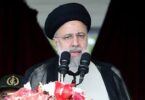F.P. Report
ISLAMABAD: Advisor to the Prime Minister on Finance, Revenue and Economic Affairs Dr Abdul Hafeez Shaikh said the upcoming budget for the fiscal year 2019-20 would come with austerity measures to reduce the government expenditures, adding that civilian, military and private sector would contribute in reducing fiscal expenditures.
Dr. Abdul Hafeez Shaikh Saturday unveiled government’s short and long term economic roadmaps, focusing on fiscal consolidation and revenue mobilization, to put the economy on growth trajectory after steering it through the stabilization phase of one year.
The advisor was addressing an exclusive press conference here. He was flanked by Federal Minister for Planning, Development and Reform Makhdoom Khusro Bakhtiar, Special Assistant to Prime Minister on Information Firdous Ashiq Awan, Minister for Power Division Omar Ayub Khan, State Minister for Revenues, Hammad Azhar and other senior government officials.
The advisor said that the next year would be the year of stabilization for the economy, during which the focus would be on saving the economy from different vulnerabilities and after achieving the target of stabilization, the journey for growth would start. He said that the government had also devised a comprehensive mechanism for gradual reduction of electricity losses from current Rs38 billion per month to zero by 2020.
Hafeez Sheikh said that the Federal Board of Revenue (FBR) would be given Rs5.5 trillion revenue collection target for the next year and this target could be achieved by taking many strategic measures. He said that enhancing tax collection was imperative to provide relief to the vulnerable segments of society with the provision of subsidies in different sectors.
The finance advisor said that Pakistan was having lowest tax to GDP ratio in the region, which is just 11 percent compared to 16-20 percent in the regional countries.
He said that only 2 million people were paying taxes in Pakistan, which include 0.6 million salaried class, adding that 85 percent of the total tax was being paid by just 360 individuals or companies.
The advisor said that there were around 341000 industrial utility connections but only 40,000 were registered for sales tax, while out of 3,100,000 commercial consumers, only 1,400,000 were registered taxpayers.
Same is the case with bank account holders as only 10 percent of account holders were taxpayers, besides out of 100,000 companies registered with Securities and Exchange Commission of Pakistan (SECP) only 50,000 were filers.
The advisor said that government had recently announced Asset Declaration Scheme and given an opportunity to individuals to declare their undisclosed assets by paying just 4 percent taxes, adding that the government would go after the tax evaders one the deadline for this scheme ends on June 30.






